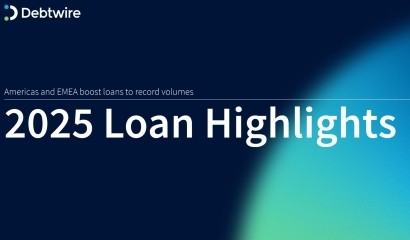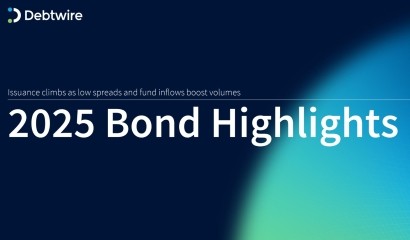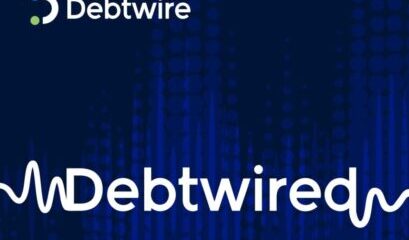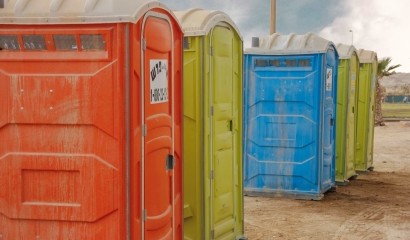Conair, Harbor Freight Tools, Michaels top Debtwire tariff watch list
Creditors and restructuring advisors are scrutinizing retailers and consumer products companies exposed to the Trump administration’s unpredictable tariff regime, particularly those reliant on Chinese manufacturing.
“For certain retailers, it feels like the first few months of the pandemic,” said a sector advisor, who noted that companies have no way to model their businesses amidst the uncertainty.
President Donald Trump has doubled down on imposing tariffs on China in recent days even as he delays the implementation of his so-called reciprocal tariffs to give countries other than China time to negotiate with the US. Tariffs on Chinese goods now stand at 145% and rise further for some categories of products when earlier tariffs are applied, according to frequently changing guidance from the White House.
“The China tariffs are so severe it’s almost effectively an embargo,” said a buysider. Companies can try to find alternative manufacturing sites, but this will be challenging in categories like small electronics and power tools where China is the dominant producer, he said.
Debtwire spoke to several market participants across investors and advisors to identify some of the companies most exposed to the tariffs rolled out since Trump’s 2 April “Liberation Day” announcement and other firms less at risk.
Consumer products names include Conair, Fender Musical Instruments, Instant Pot Brands, Traeger Grills and Weber. Retailers on watch lists include Harbor Freight Tools, Michaels, Parts Authority, Saks Global, QVC and Wayfair. Air cargo group Atlas Air is also at risk as companies pull back on Chinese imports. Next Level Apparel, Great Outdoor Group and Air Transport Services Group are among the names that may have less immediate exposure to the Chinese tariffs.
Consumer Products
Conair
Conair, a manufacturer of personal care products and small appliances, heavily relies on imports shipped from China, according to Import Genius, a platform tracking global shipments. That has spooked creditors, but some lenders to the company are hoping it can rely on existing inventory to buy it some time before there is more policy clarity and it needs to place more orders from China, said a sector advisor. The company may need to line up substantial bridge financing to move production to non-Chinese ports, said a buysider. Conair’s USD 1bn term loan due 2028 moved down sharply on the April tariff announcement, falling from the mid-80s to as low as 67/70, according to Markit. One broker quoted the loan even lower on Thursday. A group of Conair lenders recently organized with Paul Hastings, Debtwire reported.
Fender Medical Instruments
Musical instrument brand Fender Musical Instruments imports 20% to 25% of finished products from China and around another 10% from Mexico, according to S&P Global Ratings, which downgraded the issuer to B- in March due to the exposure. Quotes on the company’s USD 400m term loan due 2028 fell from the high 90s in early February to as low as 75/80 following Liberation Day, according to Markit. The loan was last quoted at 79.5/81.9.
Instant Pot Brands
Instant Brands collapsed into bankruptcy in 2023 in part due to disruptions caused by a “supply chain perfect storm” in the wake of the pandemic that impeded shipments from Asia. Centre Lane Partners separately purchased the company’s appliance and houseware businesses for USD 122.3m and USD 228m, respectively, using private credit loans provided by MidCap Financial. Instant Brands Appliances, the maker of the Instant Pot and other small appliances, heavily relies on manufacturing in China, exposing the business to tariff risk, a sector advisor said.
Traeger Grills and Weber
Grill companies Traeger Grills and Weber rely on imports from China, exposing the firms not only to Chinese products but also aluminum and steel. Around 80% of Traeger’s grills are manufactured in China, and it expects the tariff policy will eat into its revenue and profitability, according to an SEC filing.
Companies selling expensive, non-recurring items such as grills are more vulnerable to heavy tariffs since consumers are more sensitive to price changes, said a buysider. Weber grills cost on average around USD 700, and some of Traeger’s high-end wood pellet grills sell for USD 1,800, according to the companies’ websites.
Traeger’s USD 510m term loan moved down the low 90s to 81.5/84.6 following the tariff announcement, while shares are down over 20%. Weber’s USD 1bn term loan due 2027 has held up better, falling to just above 90 from the high 90s in February, according to Markit. Rating agencies proposed upgrading Weber in December following its equity merger with griddle maker Blackstone.
Next Level Apparel
Next Level Apparel, a wholesale producer of blank apparel, is in the market to find a private credit solution to address upcoming maturities. Despite some trade and supply chain challenges, the Blue Point Capital Partners-backed company has the potential to significantly reduce leverage if it manages to ramp up the business, a source previously told Debtwire. Next Level primarily imports products from Latin America, instead of China. The issuer’s USD 211.7m term loan due 2026 has held steady over the past month, last being quoted at 79.5/83.75.
Retail
Harbor Freight Tools
Discount hardware chain Harbor Freight Tools could go back on watch lists despite successfully refinancing its USD 2.85bn term loan last year, according to a sector advisor and a buysider. But while Harbor Freight’s supply chain relies on China, the company has lower prices than larger competitor Home Depot and may be able to pass some tariff costs to customers, said a second sector advisor. The buysider countered that Harbor Freight’s business relies on competitive pricing and higher prices will push consumers to buy from competitors. Harbor Freight’s USD 2.85bn term loan due 2031 was last quoted at 86.8/88.3, compared to 97.78/98.39 on 28 March, according to Markit.
Kohl’s
Discount department store Kohl’s was already under pressure prior to the tariffs as new CEO Ashley Buchanan attempted to turn around a company with falling sales and a failed business strategy. Now with heavy exposure to China for its private label brands, Kohl’s could see a 35% EBIT headwind if the 145% tariffs remain in place, according to JPMorgan analysts. Market participants are now watching to see how Kohl’s will address its USD 350m of senior unsecured notes due in July. The 2025 notes last traded on Thursday at 98.32. Longer dated 4.625% notes due 2031 are trading at 59 for a yield of 16%, according to MarketAxess.
Michaels Companies
Apollo-backed Michaels Companies’ USD 3.85bn capital structure has taken a significant hit since the tariff announcement with its USD 1.3bn senior unsecured notes due 2029 now trading at 36 cents on the dollar, down from 52.38 before Liberation Day, according to MarketAxess. The USD 1.95bn term loan due 2028 was last quoted at 58.8/60.6. Around 75% of the arts and craft retailer’s goods come from China, said two sources familiar with the matter, with one noting that Michaels cannot easily replace these vendors. Still, Michaels has a solid liquidity position across an undrawn USD 663m ABL facility and USD 573m in unused borrowing capacity under its revolver, as reported.
Parts Authority
A group of lenders to Parts Authority has organized with Davis Polk as that auto parts distributor navigates the tariffs, Debtwire has reported. The auto sector has come under pressure from across-the-board tariffs and proposed 25% tariffs on new automobiles and auto parts. The company’s USD 750m first lien term loan has been moving down since March and was last quoted at 78.3/80.5, compared to 88.286/89.536 on Feb 28, according to Markit.
QVC
QVC Group, a social shopping company that sells products through TV channels and mobile applications, imports a significant amount of merchandise made in China, according to its company’s SEC filings. However, since most of the merchandise is small, inexpensive items and tariffs are imposed on the cost of goods imported, not sold, QVC might be able to pass the cost along to customers without hurting demand, said a buysider. The issuer’s USD 605m 6.875% senior secured notes due 2029 traded down from 74 in late March to under 60 in April, according to MarketAxess.
Saks Global
Creditors to luxury department store operate Saks Global were feeling more hopeful about the company’s prospects this year after it raised over USD 1bn in liquidity as part of a 2024 deal to combine the storied Saks Fifth Avenue and Neiman Marcus brands. But the company is heavily reliant on imports from Europe and China, across private label and branded products. The issuer’s USD 2.2bn senior secured notes due 2029 have traded off on the tariff announcement, changing hands Thursday at 72.25 compared to 81 on 1 April and the mid-90s in February.
Wayfair
E-commerce retailer Wayfair manufacturers a “substantial portion” of its products in China, according to an SEC filing. While the company is trying to find new suppliers outside the country, it warns that it may not be able to offset increased costs. The company’s USD 700m of 7.75% senior secured notes due 2030, issued weeks before the tariff announcement, recently traded at 91 to yield 9.9%, according to MarketAxess.
Great Outdoors Group
Great Outdoors Group, owner of sporting goods retailers Bass Pro Shops and Cabela’s, has a small exposure to Vietnam and China in its apparel segment, according to a buysider. The company’s solid free cash flow, robust liquidity position and its double B credit differentiate it from other retailers, the buysider said. The issuer’s USD 5bn first lien term loan due 2032 was last quoted at 97, down from near par prior to the April announcement, according to Markit.
Shipping
Atlas Air
Cargo airline Atlas Air’s business will be heavily impacted due to the reduction in international trade, said two buysiders. The airline is particularly exposed to trans-Pacific routes, said one of the buysiders, who noted that while Atlas could shift flying to other routes, overall levels of trade are expected to decline. Atlas’s USD 985m term loan due 2030 dropped from near par to 89.9/92.9 on the announcement before regaining some ground. The USD 850m 8.5% senior secured notes due 2030 traded from 101 to the low 90s, according to MarketAxess.
Air Transport Services Group
Stonepeak Partners closed the buyout of air cargo operator Air Transport Services Group days after Liberation Day. ATSG’s business is much more domestically focused on Atlas Air’s, reducing the direct impact of a slow down on international trade, said a buysider. The issuer’s new USD 500m 7.25% senior secured notes due 2032 last traded at 99, according to MarketAxess.











